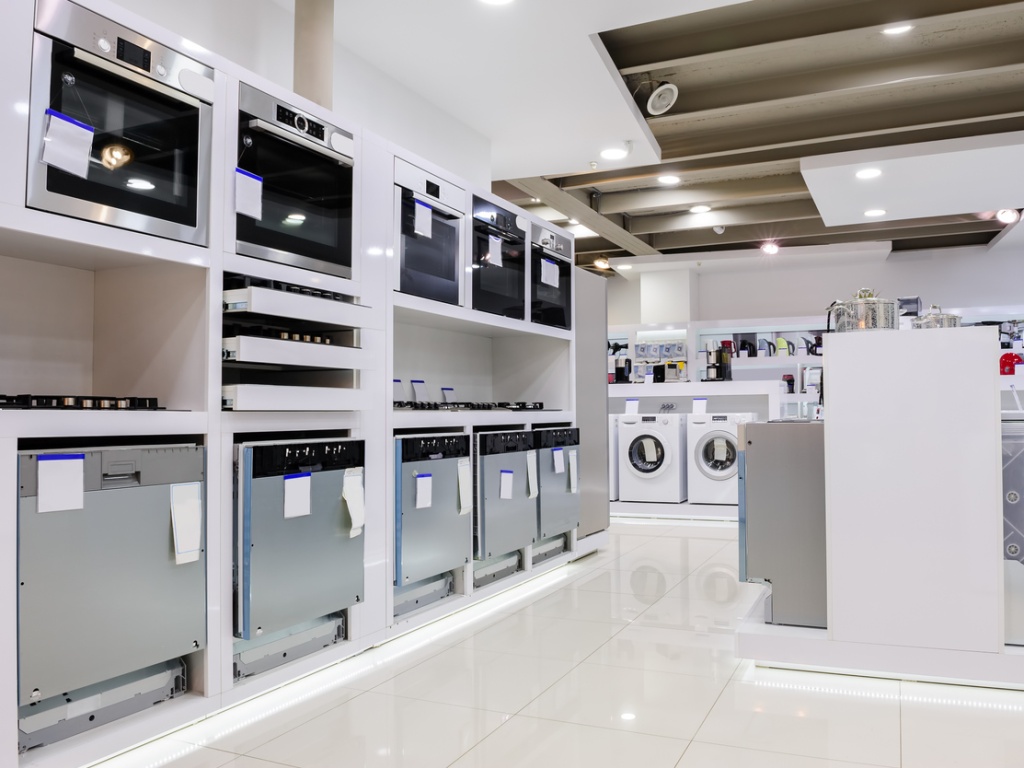Market surveillance authority
We monitor the compliance of products on the Irish market with EU energy labelling and ecodesign regulations. Learn more about our role, the legislations we follow and how to report non-compliance.
The EU Ecodesign Directive and the EU Energy Labelling Regulation contribute significantly to efforts to reduce greenhouse gas emissions. They also provide a level playing field for economic operators and facilitate free movement of products within the EU Single Market.
The regulations cover many domestic, commercial, and industrial products including:
- household and commercial appliances
- building services products
- IT-related products
- lighting products
- fans, motors and more
The main goal of the EU ecodesign and energy labelling is to set high standards of energy efficiency in the EU market, stimulating competition, encouraging innovation and creating a more sustainable economy and society.
Our role
As the Market Surveillance Authority (MSA) in Ireland, SEAI's role is to verify whether products sold in the EU follow the requirements laid out in EU regulations.These regulations include requirements around energy labelling, ecodesign and tyre labelling.
Our role as MSA includes the following:
- promoting compliance – raising awareness and educating economic operators on their obligations under the regulations
- monitoring compliance – undertaking both planned and responsive inspections and investigations
- verifying compliance – documentation and laboratory checks
- addressing non-compliance – through voluntary action, through civil enforcement, including withdrawal and recall of products from the market, and through prosecution in the event of serious offences being committed.
How we monitor the market
To monitor energy related products in the market, Authorised Officers of the MSA carry out regular checks. This includes the following:
- conducting detailed compliance assessments of products
- visiting retailers to undertake labelling inspections
- monitoring online platforms
- monitoring advertisements
We regularly publish reports from our inspections. These reports can be found in the ' Market surveillance campaign reports' section of specific category pages in our energy labelling and ecodesign section.
EU Legislation
EU legislation around energy labelling and ecodesign has been created to improve the energy efficiency of products on the EU market.
The EU Energy Labelling Regulation (EU 2017/1369) sets out the responsibilities of manufacturers and retailers. It is supported by further regulation for each product which specify the information to be displayed on the energy label. As the MSA, we are working to promote energy efficiency measures on the Irish market, as well as monitoring compliance.
As the MSA, we are enforcers of these regulations. We are bound by the following regulatory documents:
Establishes a framework for setting ecodesign requirements for energy-related products.
Requires labelling and standard product information for energy use and other resources by energy-related products.
Irish Regulations
- S.I. No. 669/2022 European Union (Energy Labelling) Regulations 2022(opens in a new tab)
- S.I. No. 670/2022 European Union (Tyre Labelling) (Energy Efficiency) Regulations 2022(opens in a new tab)
- S.I. No. 671/2022 European Union (Ecodesign Requirements for Certain Energy-Related Products) (Amendment) Regulations 2022.
EU collaboration
Alongside MSAs from other EU Member States, we participate in a range of collaborative market surveillance initiatives:
SEAI is collaborating with twenty-five other Market Surveillance Authorities (MSAs) in the Energy Efficiency Compliant Products 4 (EEPLIANT4) project, which aims to:
- strengthen the enforcement of EU Ecodesign and Energy Labelling regulations;
- ensure energy-related products meet minimum energy efficiency standards;
- deliver economic and environmental benefits by improving compliance rates;
- reduce energy consumption and consumer energy bills;
- promote fair competition among manufacturers.
SEAI is participating in 8 work packages within this project, namely:
- Cooking appliances
- Electronic displays
- Standby / networked standby
- Solid fuel stoves
- Vacuum cleaners
- Training and study visits
- Emerging issues and challenges
- Joint activities with customs
EEPLIANT4 builds upon the successes of previous initiatives, such as EEPLIANT2 and EEPLIANT3, in which SEAI also participated.
More about EEPLIANT4 can be found on the official website: EEPLIANT - About EEPLIANT4
SEAI is participating in JACOP 2024 (Joint Actions on Compliance of Products), a coordinated market surveillance initiative funded by the European Commission under the EU Single Market Programme. This project:
- Combines MSAs from EU and EFTA countries to assess compliance with Ecodesign regulations.
- Conducts joint testing to ensure consistent market surveillance.
- Enhances cooperation between authorities.
- Supports the integrity of the Single Market.
JACOP 2024 is organised by DG GROW, with the European Innovation Council and SMEs Executive Agency (EISMEA) as the contracting authority.
SEAI is participating in initiatives for refrigeration equipment and air cooling products, which include assessing energy consumption and ensuring compliance.
These assessments ensure that consumers receive accurate product information and contribute to promoting energy-efficient products and standardised compliance measures. Findings will be shared at a later stage to provide insights into product performance and support industry best practices. We encourage businesses to sign up for the JACOP 2024 newsletter to stay informed about its findings.
Between 2022 and 2024, SEAI participated in the JAHARP2022-01 project, a Joint Action coordinated by PROSAFE, which brought together Market Surveillance Authorities (MSAs) from across Europe. The joint action involved inspecting documentation and testing products to verify compliance with EU energy labelling and Ecodesign requirements. SEAI was involved in workstreams targeting washing machines and professional refrigeration equipment. It also participated in other workstreams focused on harmonising market surveillance practices. The project highlighted compliance issues, particularly in relation to documentation provided by businesses to demonstrate the compliance of their products, underscoring the importance of market surveillance activities by MSAs. More about this project can be found here: JAHARP2022
SEAI, in cooperation with other Market Surveillance Authorities across the EU, participates in The Energy Testing Pool 2020 – ENERTP2020. It is a 48-month project, coordinated by PROSAFE, to enhance market surveillance of energy-related products in accordance with the Ecodesign and Energy Labelling legislation. Collaborating with accredited laboratories through ENERTP2020, this project aims to facilitate product testing, verify compliance, ensure energy efficiency, and protect consumers by validating energy-saving claims. More info about this project: ENERTP2020
Recent updates
New Ecodesign rules for local space heaters
Please be advised of an important update to the regulatory landscape for local space heaters. From 1st July 2025, Commission Regulation (EU) 2024/1103 will apply to all local space heaters placed on the Irish and European market, superseding the previous Regulation (EU) 2015/1188. These new rules are part of the EU's broader European Green Deal and 'Fit for 55' package, designed to drive energy efficiency, reduce emissions, and foster a circular economy. Compliance is a legal obligation.
As the Market Surveillance Authority of energy-related products in Ireland, SEAI is here to ensure you are fully informed and compliant. Familiarise yourself with the list of specific obligations that your business needs to be aware of in our Notice for economic operators on local space heaters
Changes to Ecodesign and Energy Labelling requirements for tumble dryers
Commission Regulation (EU) No 932/2012 and Commission Delegated Regulation (EU) No 392/2012 are replaced by Commission Regulation (EU) 2023/2533 and Commission Delegated Regulation (EU) 2023/2534.
Most of the requirements of the new regulations are applicable from 1st July 2025, and impact manufacturers, importers, suppliers and dealers of tumble dryer products. SEAI has issued a notice to guide economic operators and get more information about these new requirements. You can review the notice by clicking the link: Notice for economic operators on tumble dryers
New regulations on smartphones and tablets
The European Union has introduced new regulations for smartphones and tablets, making them more environmentally friendly and easier to repair. Starting June 20, 2025, these products must meet stricter standards for battery life, durability, and ease of repair. With the new labelling rules, consumers will benefit from comprehensive information about the energy efficiency and lifespan of products. To help businesses comply with the new regulations, the MSA has prepared guidance notices, which are available in the following sections:
IT-related Products | Ecodesign and Energy Labelling | SEAI
Retailers | Energy Labelling and Tyre Labelling | SEAI
EPREL Verification process
The European Product Register for Energy Labelling (EPREL) now requires mandatory verification for all suppliers. This ensures data accuracy and product compliance within the EU market. The deadline to complete the verification process was 22nd October 2024. Unverified suppliers' products will now be removed from the EPREL database and will be considered as not legally placed on the market. You must complete the verification process to reactivate your existing registrations and for any new product applications.
Learn more about these requirements: EPREL platform verification process updates
New One-Stop-Shop portal from the EU Commission
Explore the recently launched one-stop-shop portal dedicated to energy-efficient products and aimed at different stakeholders.
Report non-compliance
If there is an energy related product on the Irish market that doesn't meet EU energy labelling and ecodesign requirements, you can report it to us by filling out the form below. By working together, we can make the energy market more efficient and competitive.
Please note that we will not follow up on allegations of non-compliance that are not supported by evidence.

